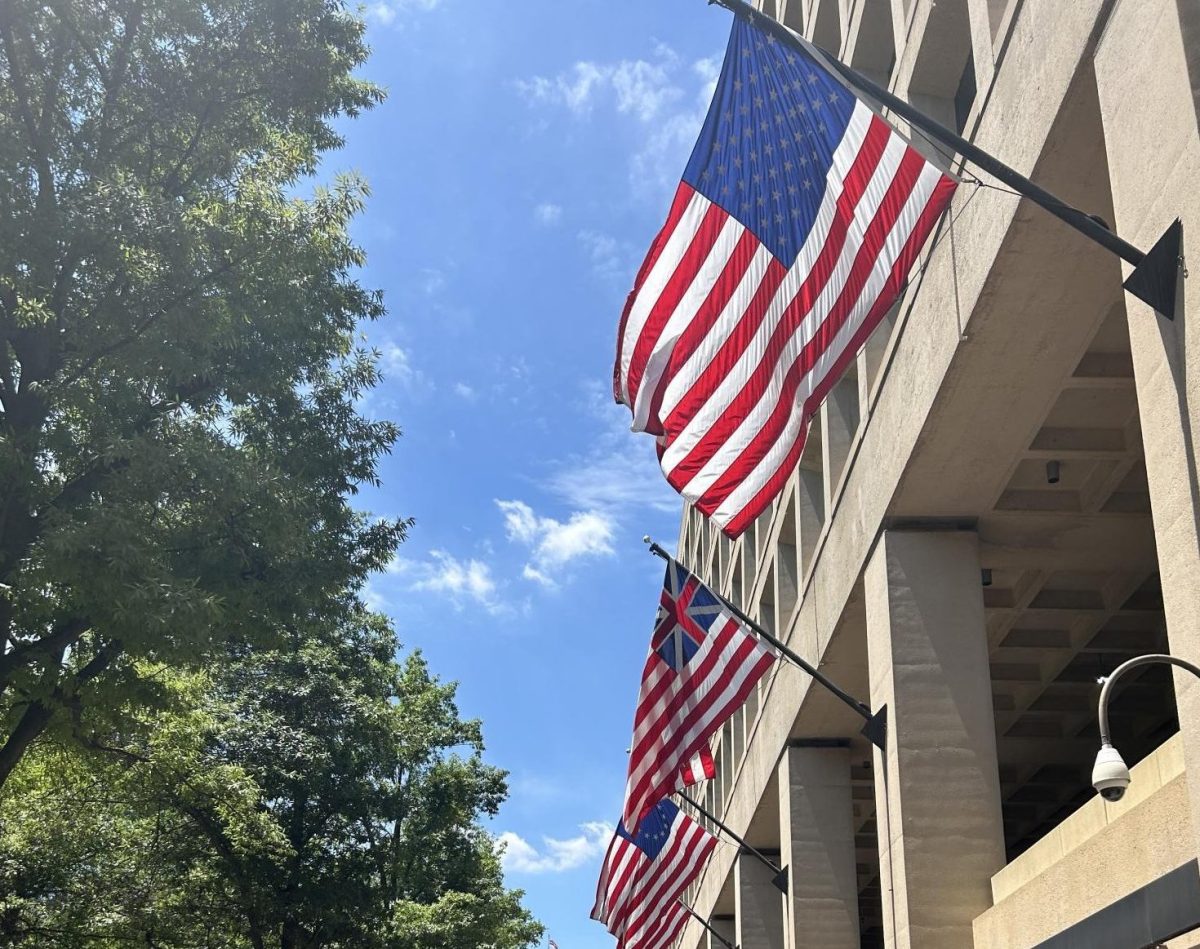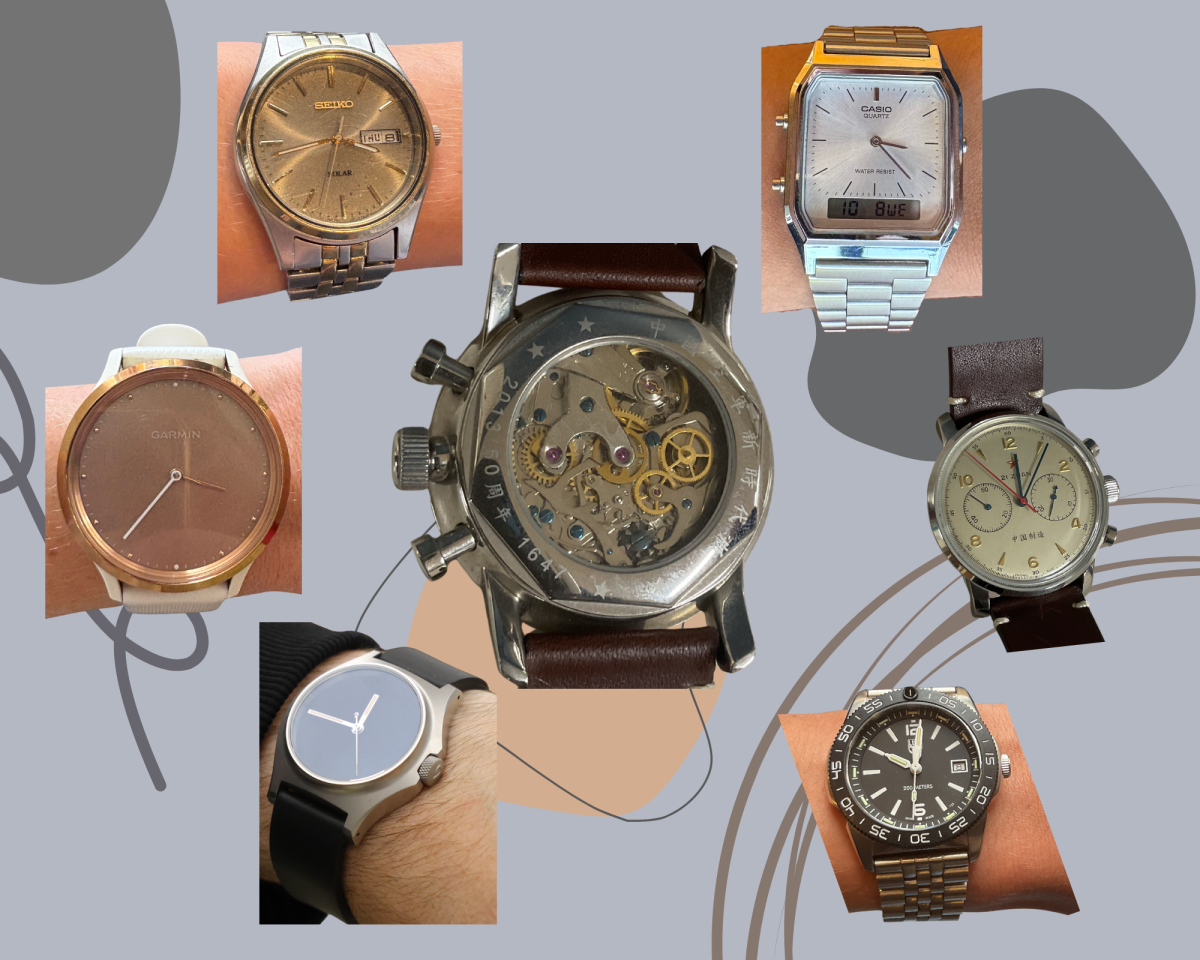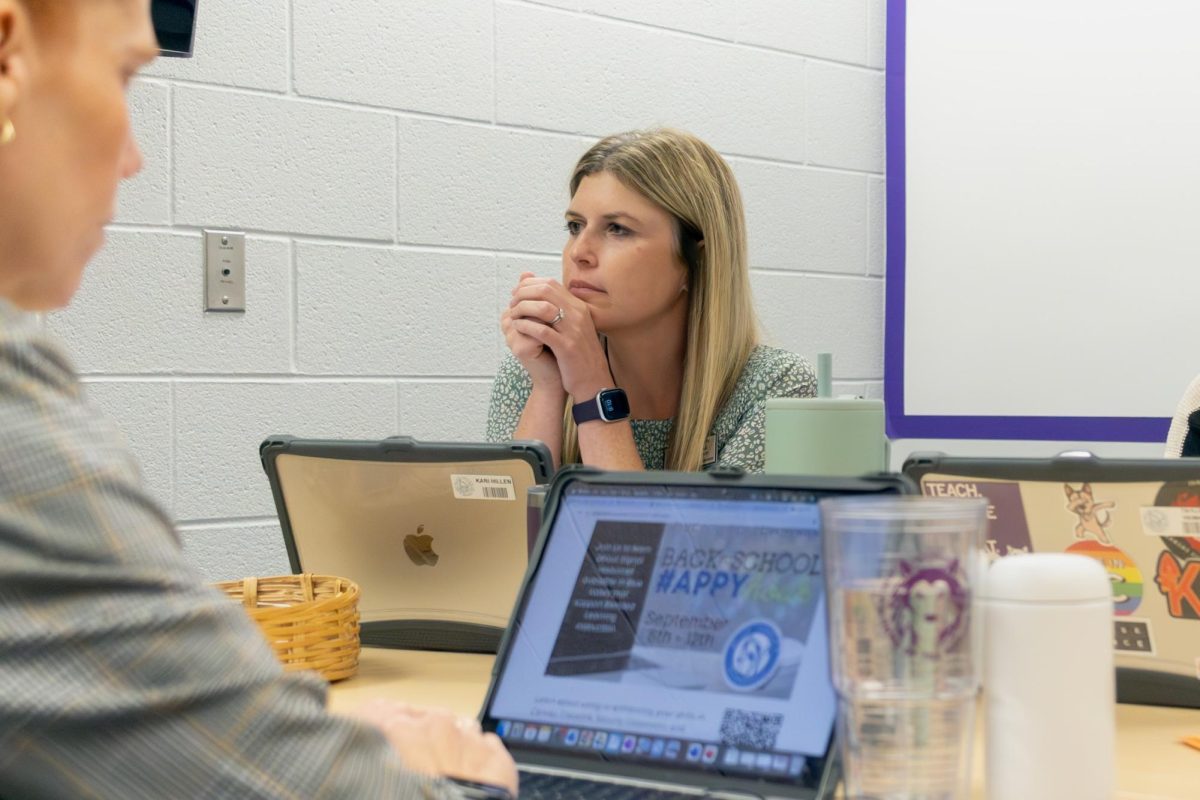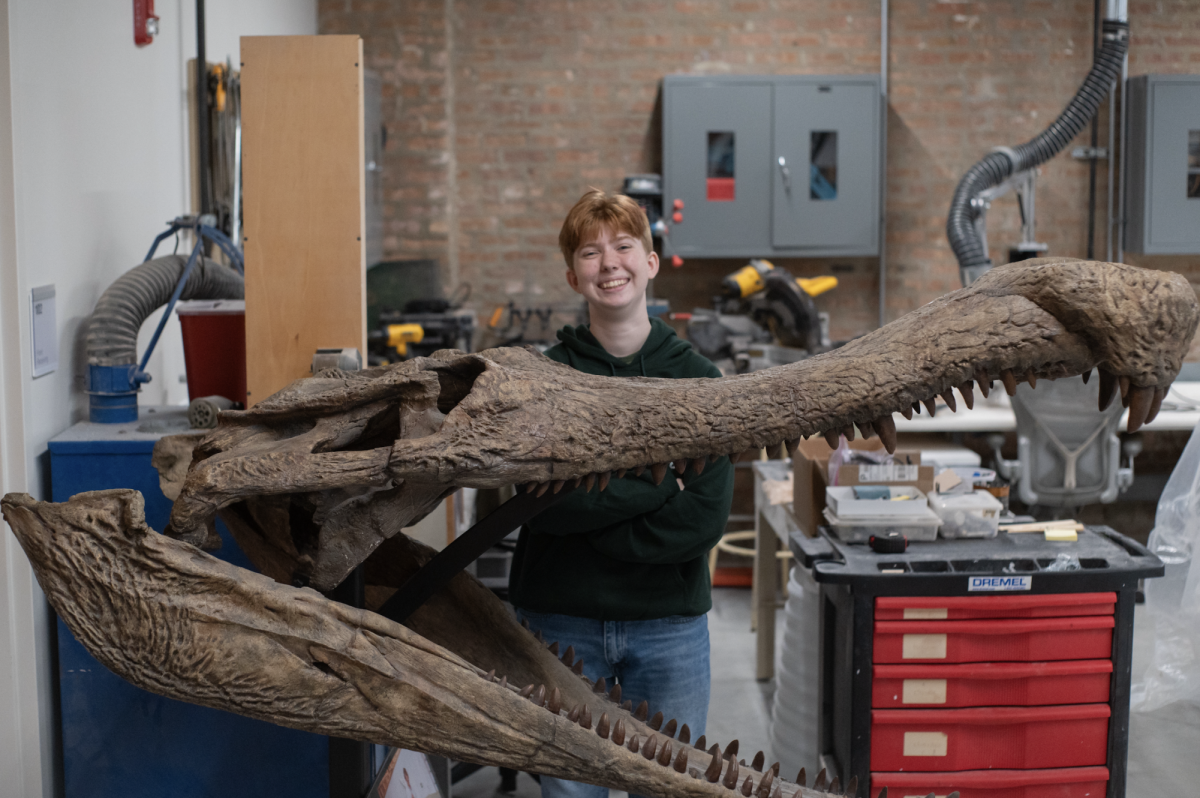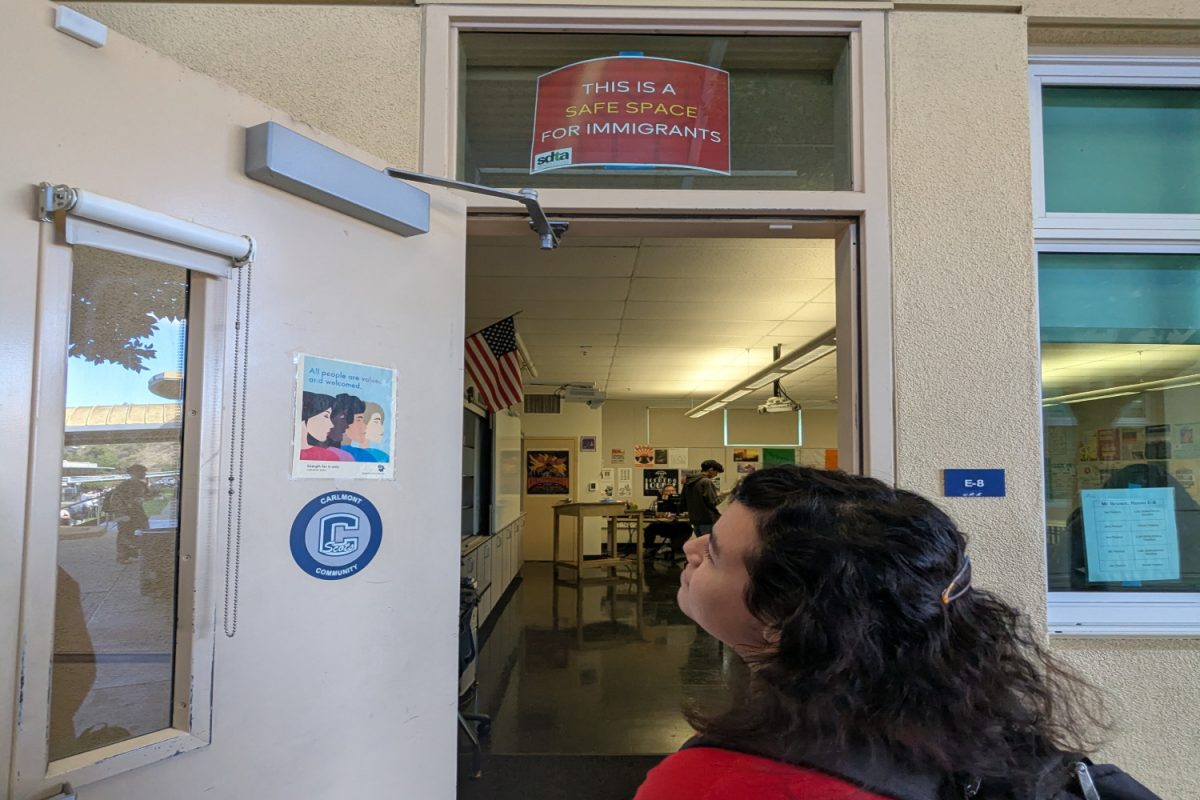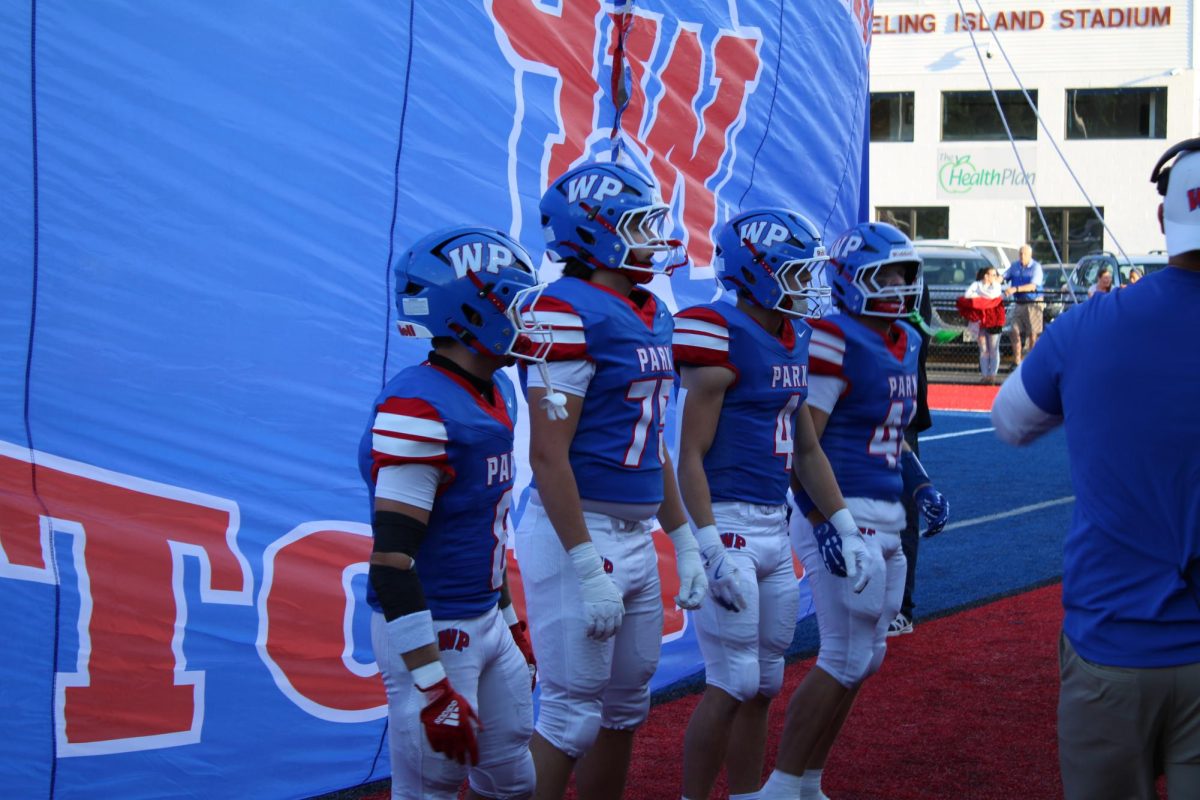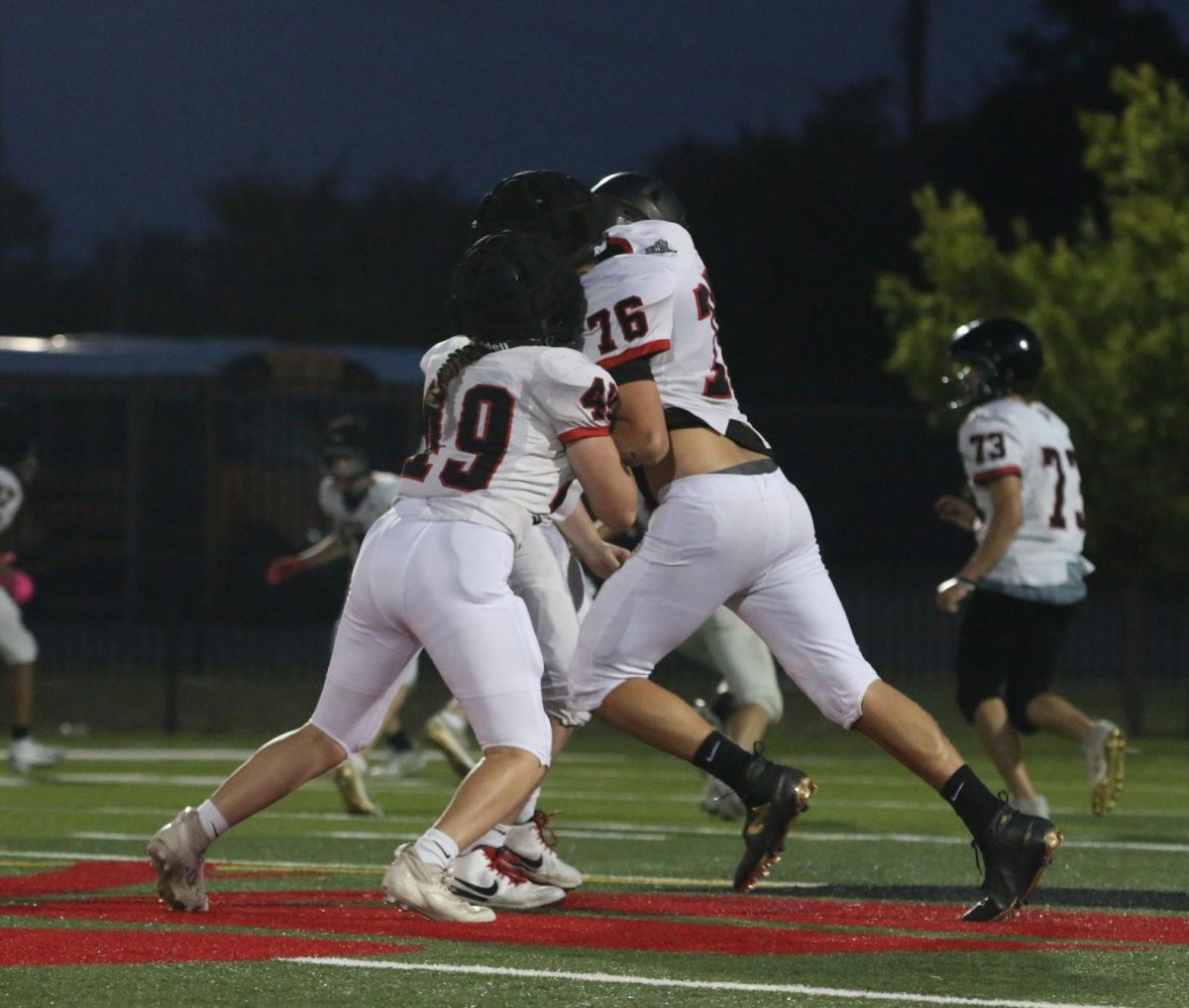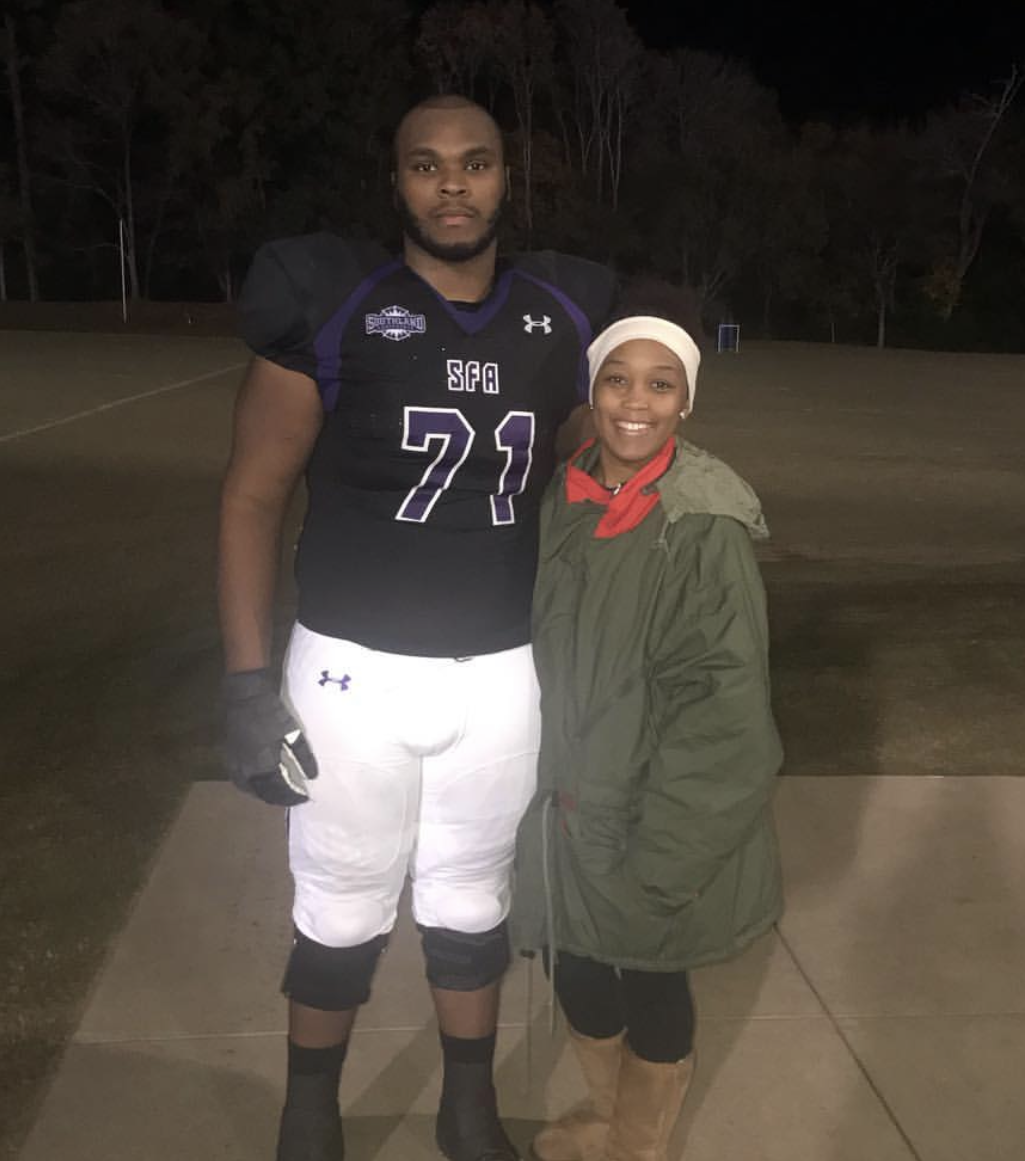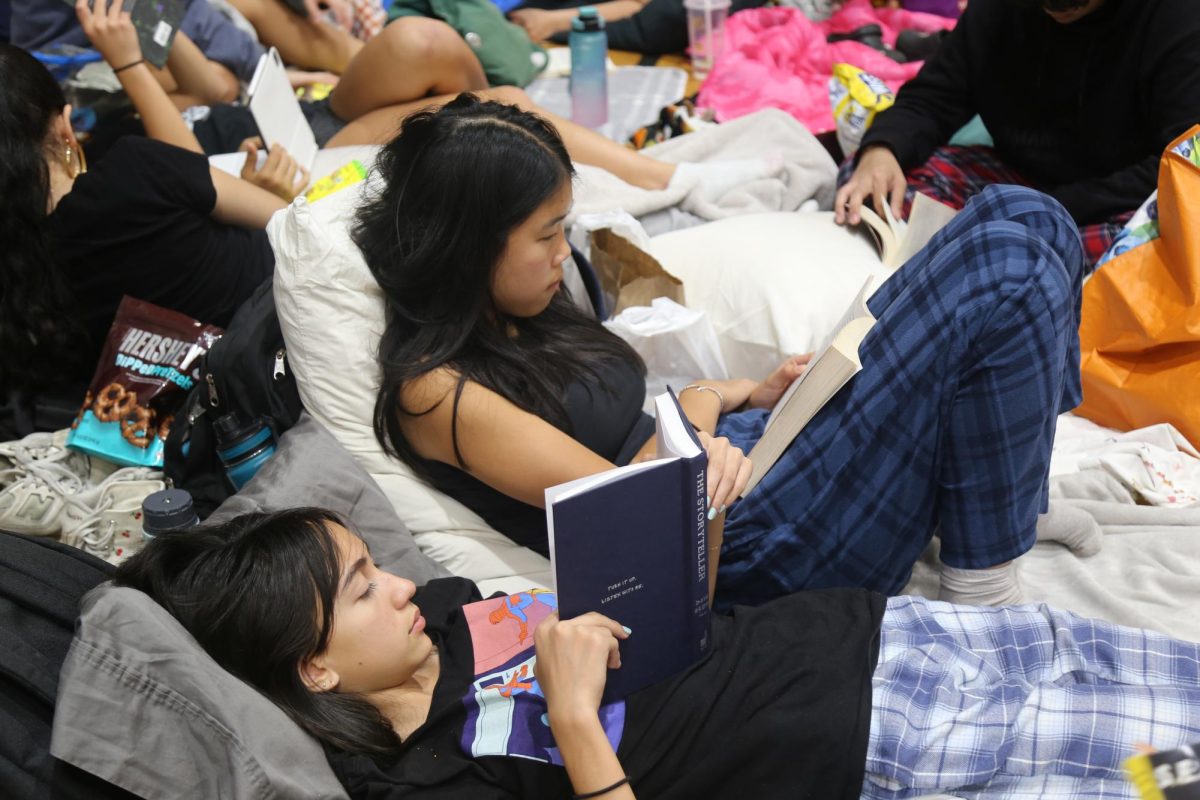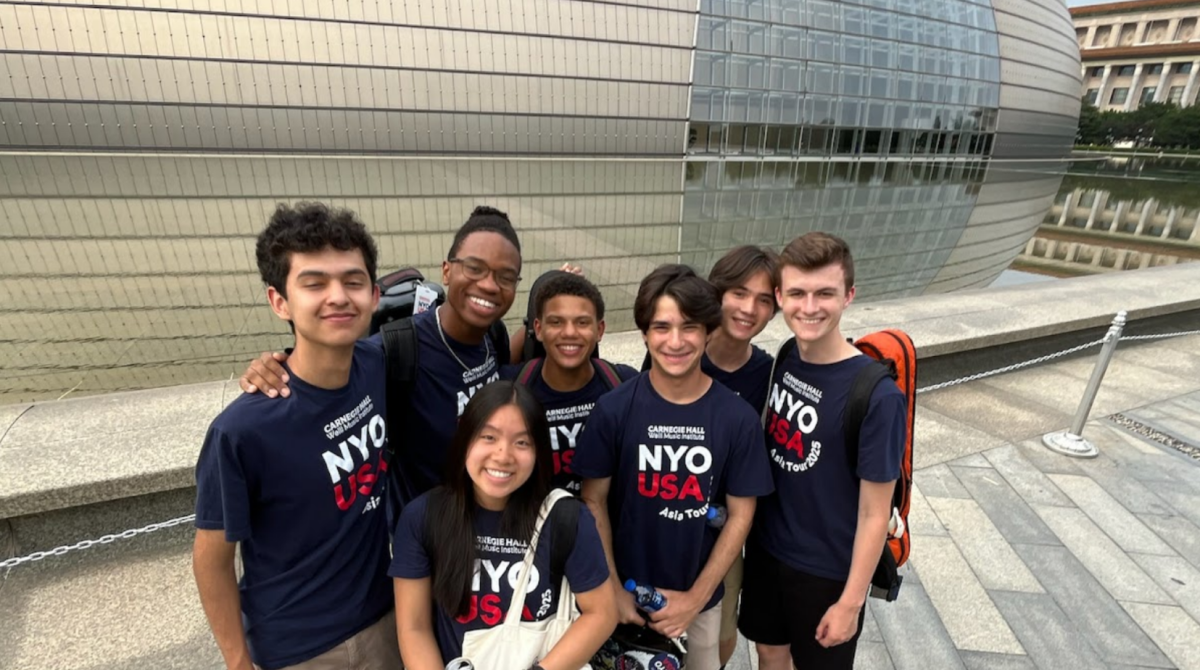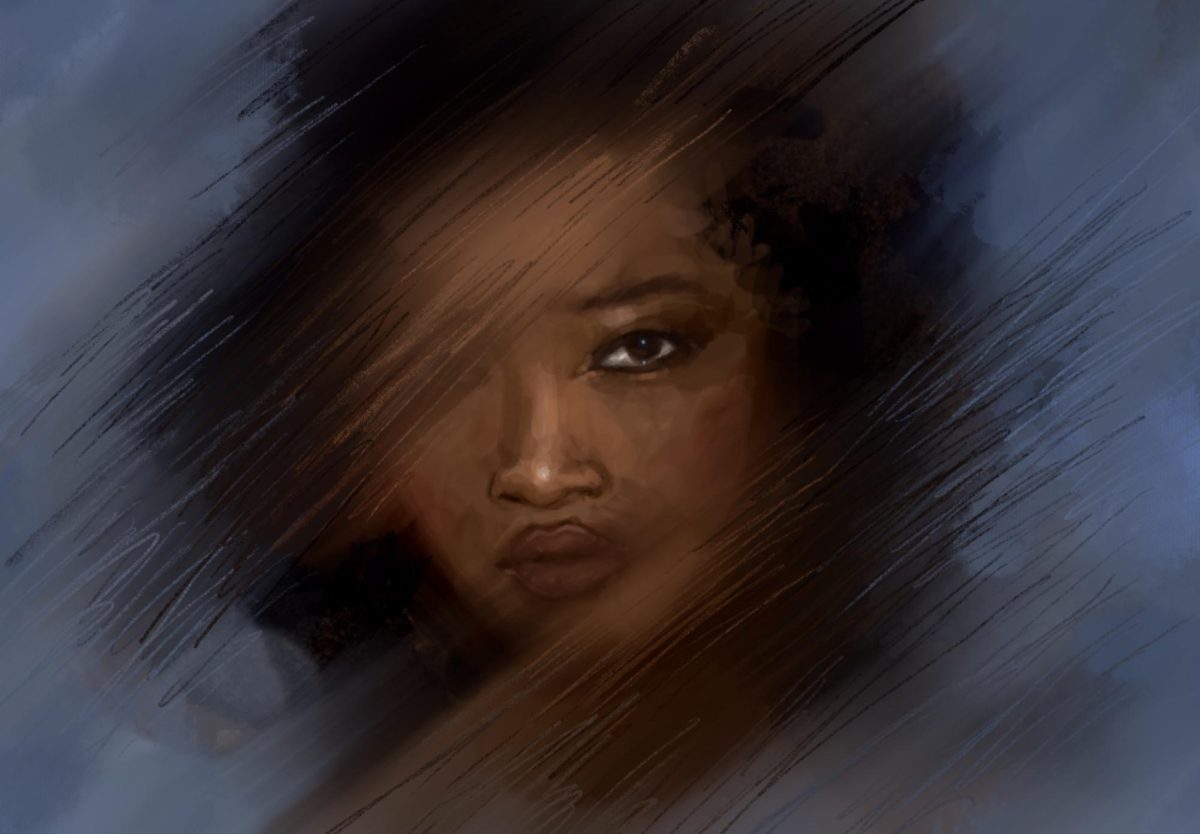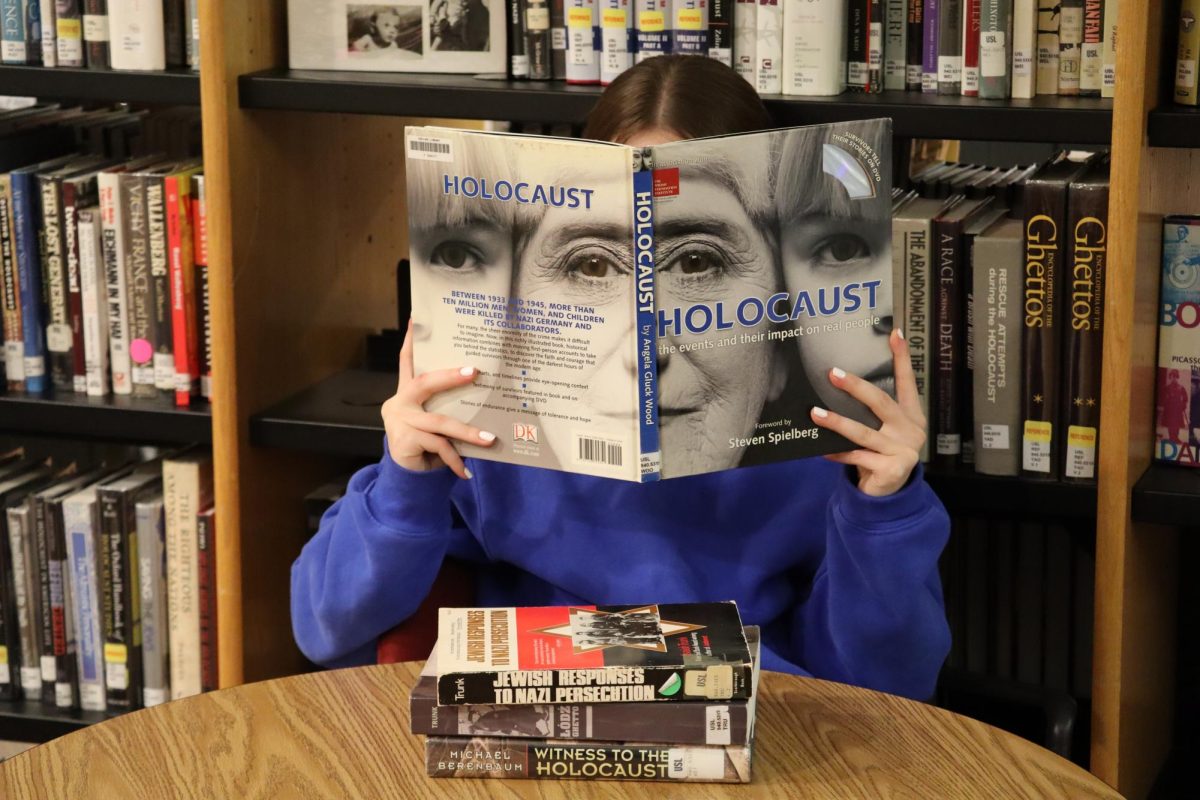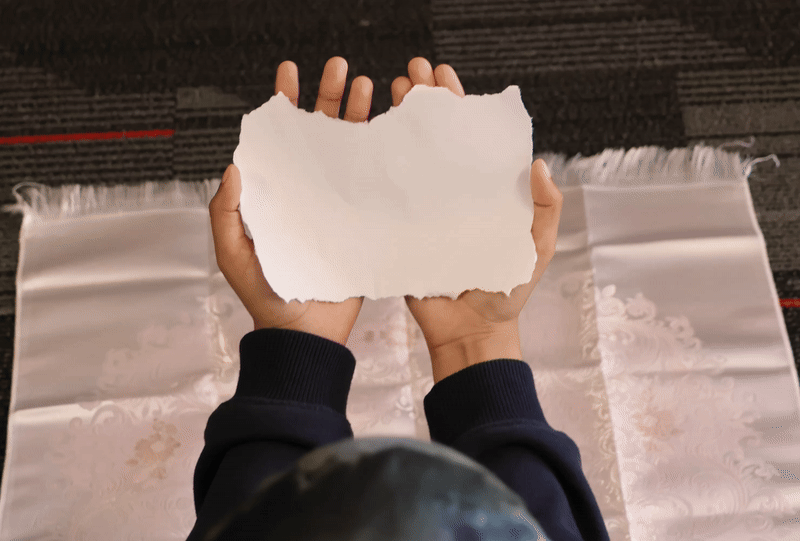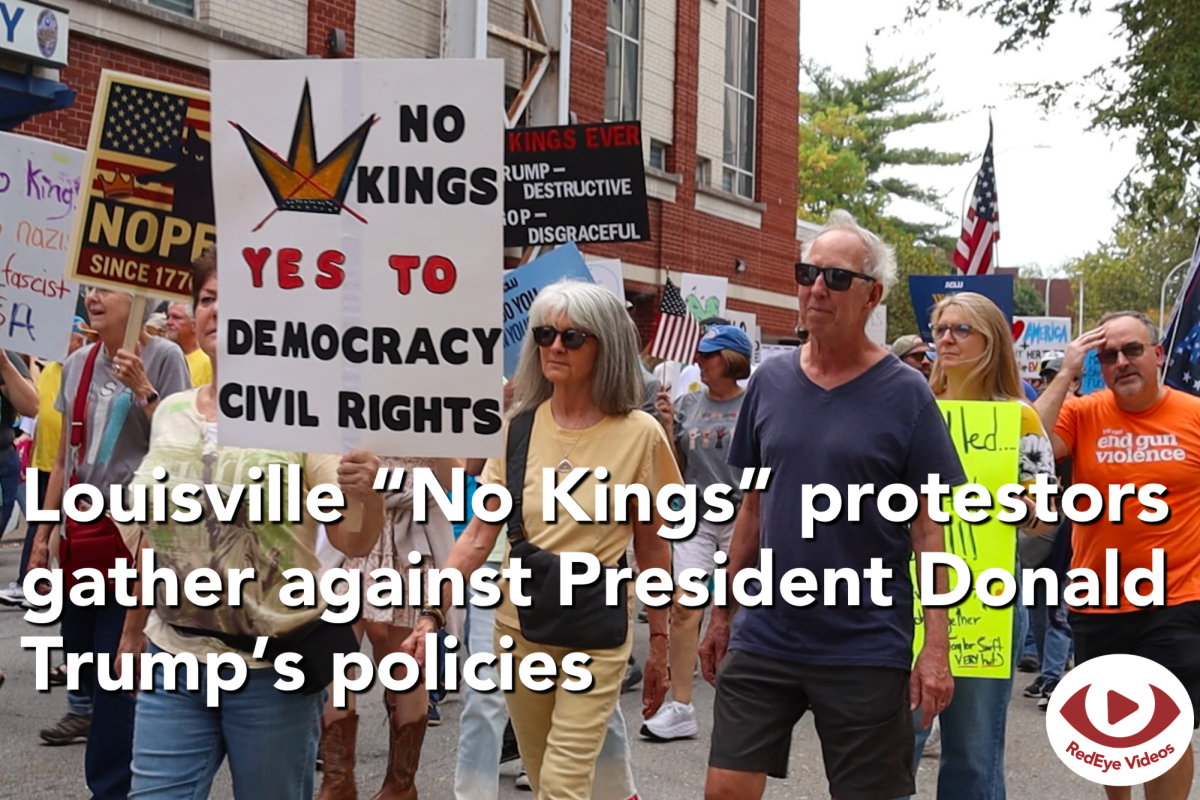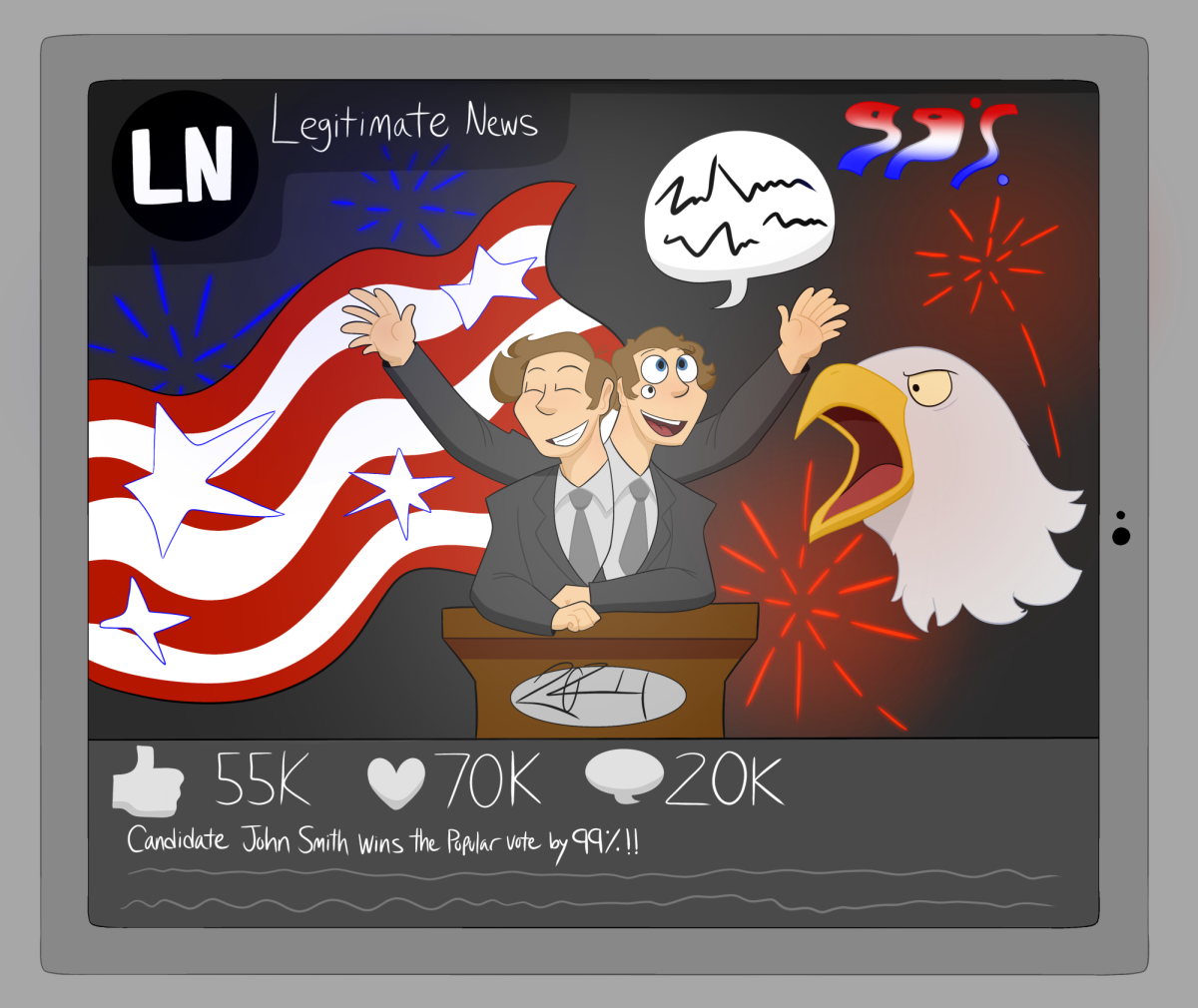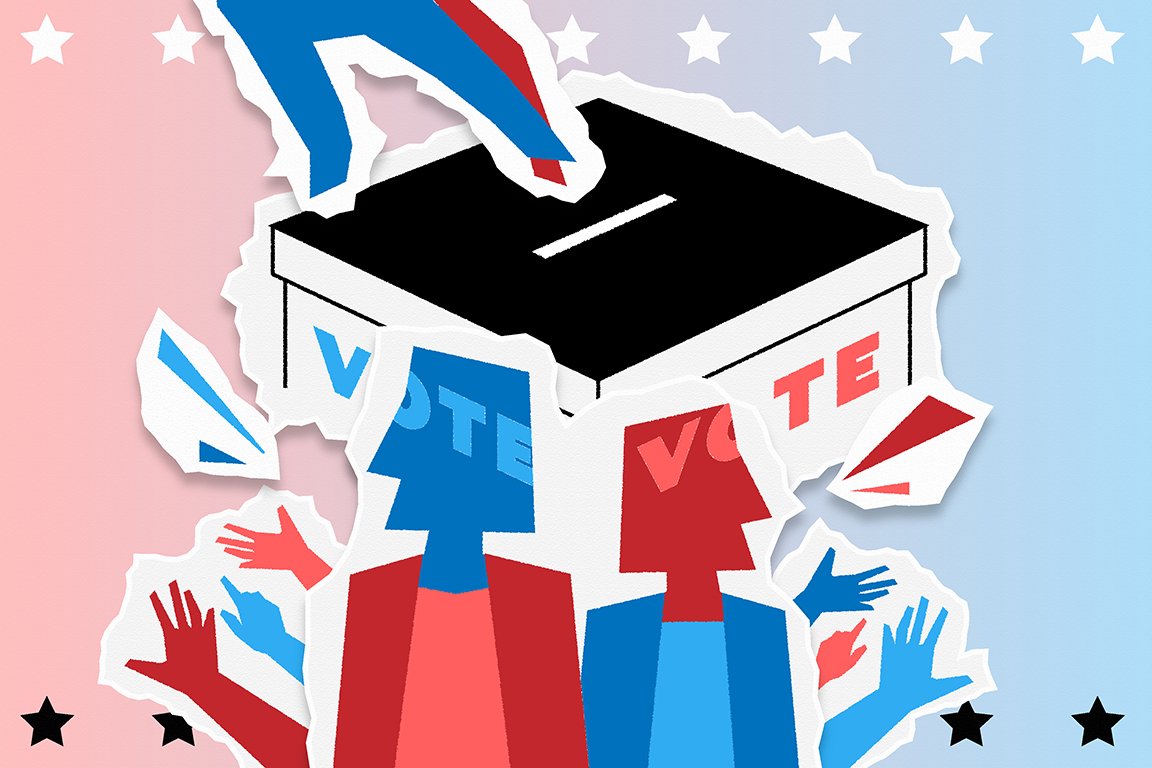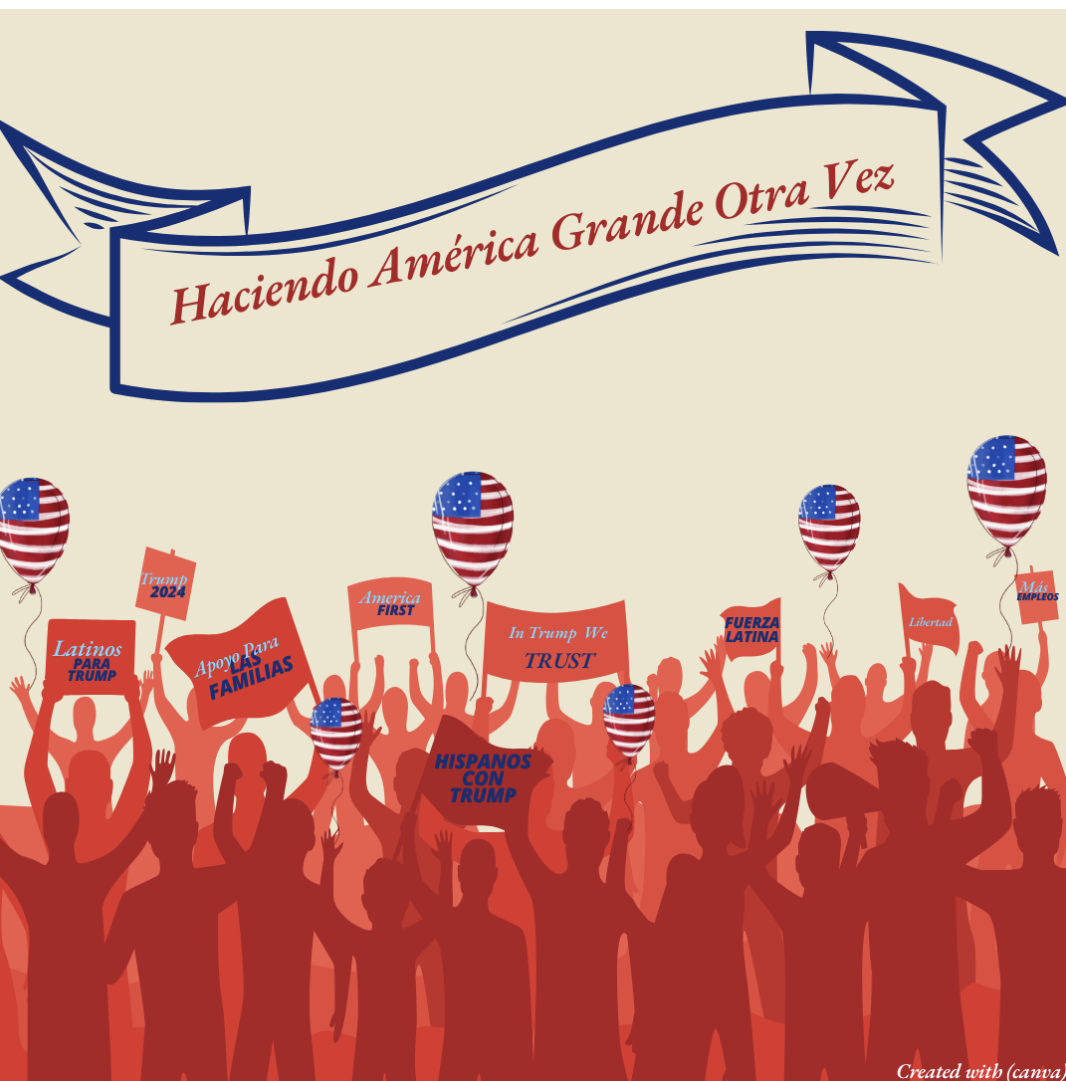“Illegal immigrants are bringing deadly drugs across our border.” “Trump is a threat to Democracy.” “The comments about Haitian immigrants were simply an exaggeration and metaphor.”
These may sound like quotes from the 2024 presidential debate between Vice President Kamala Harris and former President Donald Trump, but they were actually from the Speech and Debate team’s mock presidential debate on Tuesday, October 8, 2024.
Organized by the Bishop’s Speech and Debate Team along with their faculty advisors — History Teacher Mr. Matthew Valji and English Teacher Ms. Eliko Smith — it was the first ever debate at Bishop’s with required attendance for all high school students. Mr. Valji had wanted to do a mock presidential debate for months, and after conversations with DEIJ Director Ms. Valissa Thomas — a member of the faculty election committee who also wanted to do a mock presidential debate before the election — the debate finally happened.
The debate was structured in teams of four, with each team member responsible for a certain set of topics. Team Trump was made up of Sabrina Feldman (‘26), Sophie Arrowsmith (‘26), Rebecca Liu (‘26), and Caleb Tang (‘26), while team Harris was comprised of Annika Mody (‘27), Tyler Chang (‘26), Nason Li (‘25), and alumnus Dylan Navarete (‘24). Notably, the teams did not impersonate the candidates, as was the case with the mock republican debate put on last fall, but rather acted as advocates and defenders of their candidate’s policies and character.

For Sophie, the debate interested her because “speech and debate is super important to [her] and [she] thought it would be fun to debate topics that are more widely known.”
However, Caleb had a slightly different motivation, explaining that the debate was “a really cool opportunity” to debate important topics “in front of the entire high school.”
Approximately 40 minutes long, the debate focused on topics including reproductive rights, immigration, the economy, and Jan. 6. Each team had 90 seconds to answer questions posed to both teams, and 60 seconds to respond if the question was directed at the opposing team. In addition, each team gave a three minute opening statement and a three minute closing statement.
“I think we all did a good job of relaying what their policies were,” Annika said.
Dylan, a former captain of the team who graduated last spring, added that he “hopes [students] got inspired to actually look into the policies, not just the politics.”
Students in the audience felt similarly. “I think the debate was informative and helpful for us all to understand the policies of both candidates,” Ehiosa Bello (‘25) said.
Jayla Stafford, another senior, and leader of the Conservative Club at Bishop’s, also appreciated the focus on policy, specifically reproductive rights. “My favorite part of the debate was the Roe v. Wade discussion because I didn’t think that they were going to talk about it and it is something that is really important to me,” she said.

Mr. Valji articulated how educating the student body on each candidate’s policies was a main reason for holding the debate. “It tends to be the case, especially in this election cycle, that a lot of the conversation revolves around the personalities and identities of the candidates rather than the actual policy decisions that they would make as president,” Mr. Valji said. “This debate gave an opportunity for students to hear and learn more about the actual policies.”
To keep the audience engaged while also minimizing distractions for the debaters, Mr. Valji and Ms. Thomas came up with the idea of giving each student a red notecard and a green notecard — the green notecard expressed agreement with a team’s opinion, while the red notecard signaled disagreement.
“The red and green cards were a great idea and, as one of the debaters, it was really fun to see when people in the audience agreed or disagreed with something I or one of my teammates said,” Caleb voiced.
The students who participated in the debate were very pleased with the outcome of it. Sabrina explained that, while she was initially unsure if it was “the best idea” to expose the student body to the arguments from both sides, the debate changed her opinion. “I think the debate was absolutely the right move because it got some really respectful discussions started,” Sabrina said.
Sophie agreed, saying, “It’s really important to be able to understand all sides of the argument and never limit yourself to one opinion. The reason that we find ourselves in such a polarized climate is because people aren’t willing to understand the other side, and so I think activities like this debate are crucial.”
The mock debate was one of many initiatives created by the faculty election committee at Bishop’s, along with special curriculum in classes including Advanced Honors English and Honors U.S. Government, discussions about political polarization in DEIJ lessons, a voter registration and preregistration drive, an upcoming mock election on Wednesday, Oct. 30, and the post-election town hall scheduled for Thursday, Nov. 7.

Mr. Valji, a member of the committee, said that the debate and the committee’s programming as a whole is aimed at helping students become “more politically knowledgeable and aware.” Similarly, Ms. Thomas, also a member of the committee, explained that because students leave Bishop’s as citizens and voters, “it’s really important that [students] are in an environment that supports growth and development around civic engagement.”
Ultimately, though the 2024 election is a highly sensitive and polarizing topic, most students are pleased with the committee’s decision to approach the election with open discourse and civic engagement. Parsa Avaz-Barandish (‘27), who founded Bishop’s American Student Political Society this year and helped run the voter registration and preregistration drive, said, “I am extremely glad that the School and students on campus are interested and care about the political systems of our country and are civically engaged in developing a new generation in a democratic society; this kind of engagement is crucial.”
To read more about the faculty election committee, read Summer Hu’s article in The Tower.
This story was originally published on The Tower on October 25, 2024.


